By now it’s likely no secret that I like a little peanut butter in my chocolate or vice-versa. If you’ve followed the blog, I write about Science Fiction and Fantasy almost interchangeably at length and I’m pretty adamant that Clarke’s Law is true. For those who don’t know what that means, any science sufficiently advanced is virtually indistinguishable from magic. It sums things up pretty well for me because the world’s worked that way forever. When we couldn’t understand lightning bolts, we thought gods did it, and certainly there are things in the universe today that we don’t understand which are still being attributed to higher powers.

The rule’s a simple reminder that any time you go really advanced with your crazy Sci-Fi tropes you’re practically skipping into the realm of Fantasy. But the same is true in the other direction, something I’ve always held near and dear to my heart. If you were to take something truly magical and then approached it with science in mind, there’s a lot of it that just happens to click really well. Hell, I wrote whole books and countless tweets about the concept.
So Sci-Fantasy is, to me, a natural genre. A lot of people out there believe that you can’t really blend these two and that you end up ruining both in the effort to avoid choosing either. But from where I stand, science is fantastic to begin with, it may explain everything, but those explanations are wonderful in so many ways we never could have imagined. Don’t get me wrong, I still love some robots, but I can definitely see the allure of wanting to make some of the things from legends of old into something tangible.
Just one thing…
Just Say “No” To Apologetics
Not long ago I wrote up an article on how you would approach “realistic” dragons. The whole idea was a bit of a thought experiment on how you could make such a fantastic creature fit into a world that looks similar to our own. How could you make such a creature tangible in this world? And for those of you who have read it, you know that some things had to be changed to bring it into that real world environment. But along the way I mentioned others had tried similar and relied on “Apologetics”. To me, one of the great failings of Sci-Fantasy is that reliance on Apologetics and our use of it to simply mash Fantasy tropes into a Sci-Fi environment.
But what is “Apologetics”?
I realized sometime after publishing the article that not everyone would know off the top of their heads what it is and a quick glance at a definition wouldn’t nearly do it justice. After all, a lot of things sound really reasonable on paper until you see them in action. Hell, Facebook thrives off the idea at least someone is going to believe any bat-shit crazy theory if it’s punchy enough and paired with a good picture.
So I realized, coming off that article, I needed to clarify that point so other people following me into the Sci-Fantasy foray will understand why the word rolls off my tongue like I’m spitting at the same time. You see, most people in this world know that science is usually based in reality – even if we don’t like what it says. We’re going to disagree on what it’s saying and we’re going to try to twist it in our favor, but we’re all pretty sure that it’s at least operating on its understanding of reality. Sometimes it may be wrong, sometimes it may change over time, sometimes we’re not sure if it’s right “just yet” – but we know it’s not a work of fiction. On the other hand, many of us are pretty sure that Fantasy is, as the label suggests, a work of “fantasy”.
That’s not how Apologetics work.
Defined as “reasoned arguments or writings in justification of something, typically a theory or religious doctrine,” Apologetics is actually anything but reasonable in most cases. Where as most science and scientific debate are based in the idea that evidence is more important than theory, Apologetics is based on the idea of “my theory is right, you just don’t have the right evidence yet.” This idea, of course, is how we get the beautiful minds over at the Creation Museum.
In terms of fiction, there’s nothing really wrong with simply saying some greater power did something. Fantasy is a place that’s openly accepting of magic, gods, and monsters of all types. But one must accept that if your work starts entirely from “the fantasy is 100% true, how do I bend the science to fit it”, you’re still writing just Fantasy. If your dragons in your Sci-Fantasy world come out looking exactly like Smaug and your explanation for that is that he’s made of exotic matter never before discovered called “draconium” – you’re using something I like to call “bullshit” and may as well have just written it as Urban Fantasy without any attempt at flailing magician-like handwavium.
And hey, handwavium is allowed in the correct doses, and if you build a solid story around the whole thing – I’ll even accept you did it for the right reasons. But 9 times out of 10, if you’ve come up with “draconium”, you’re doing it so you won’t have to change the dragon to fit the rest of the world. At that point one would have to ask why you needed the “science” there at all.
Some people would ask about now: why does this matter? It’s all still just fiction. Well the reason is because Apologetics, while easier to work with and often in line with your preconceived vision, also tend to be fairly stupid.
Now that sounds like a pretty silly blanket statement to make without backing it up, so I wanted to go ahead and show you a couple examples that would make it understandable. And, to keep it simple, I’m going to use examples from a single story that gets Apologetics applied to it all the time: Noah’s Flood.
I know it seems a little unfair to pick on a religious story because some people out there genuinely believe that Noah’s Flood happened. But what I’m hoping to demonstrate is that some stories, if you’re unwilling to change them, don’t benefit from having shoddy science attached to them. At a certain point, your unwillingness to change something means you’re going to start saying some silly things. And, frankly, if it makes a story some people believe to be true look silly, imagine what Apologetics could do to something people know isn’t real like Unicorns or Dragons.

Remember, all of these are instances where the person is absolutely sure the original story is 100% accurate and that science needed to change to fit it, not vice-versa. After years of seeing these, it’s hard to narrow it down to just a couple, but I’m going to hit the examples that just really stand out for me and give an idea of how Apologetics, unlike good Sci-Fantasy, can become a little too silly for reason.
“Noah’s Flood Formed The Grand Canyon”
Water, it’s a powerful force that can chew away at a surface over a period of time one way or another. In its ice form, glaciers have carved through mountains with slow but steady pace for thousands of years, leaving behind great gouges in the Earth. Rivers, even slower, can chew through softer materials and leave behind the harder stuff until a snaking path has become a deep chasm. The Niagara Falls are currently moving about a foot a year towards Lake Erie, eventually to disappear once it’s done chewing through Limestone.
And the Grand Canyon was formed by the Colorado River.
But hold the phone! We’ve got a problem here. It would take 16 to 17 millions of years to for a river to carve a canyon that deep into the Earth and some people believe that the Earth is 6 to 10 thousand years old. If those people were to admit that it was possible the Earth is a lot older than we think it is, they would have to make their image of everything fit the science. But that’s not how Apologetics work, so they came up with a brand new conclusion!
“Noah’s Flood did it!”
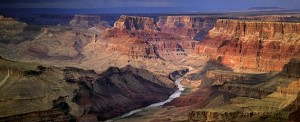
If we were to accept that erosion is a thing, then we have to accept that water could have and should have caused this canyon to form. But the idea that it has been happening for over 16 million years is just too much to bear. So the solution is simple, if a little stream of water would take millions of years to do it then that means a lot of water should have been able to do it a hell of a lot faster, right?
That’s exactly what some people think.
Never mind the fact that would require the flood to have actually introduced enough water to the planet that we would still be flooded today (get to that later), if having a ton of water running over a surface was enough to carve a canyon then every monsoon season would introduce a brand new canyon. So there’s a following of people out there who legitimately believe that the Grand Canyon was created because it rained 40 days and 40 nights and the deluge ended up scooping out part of North America one time and never again.
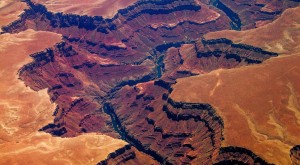
I know it was supposed to have been one hell of a flood, but that was some magic water (something that would fit very well in fantasy stories).
Speaking Of The Water…
And that leads to another issue. One of the big questions of Noah’s Flood that people like to debate over is where exactly the water came from and where it went. After all, if you’re going to suggest all of the things happening in these stories happened in the real world, you’d have to explain where the water went after the rain ended and where it was before the rain started. Sure, you could try to claim that God made the rain appear, but then you’d have to explain why God made an exception in that whole conservation of mass thing that we’ve observed in the universe.
So that water had to be somewhere and had to go somewhere, right?
Solution 1: The Earth Is Expanding
Welcome to the expanding Earth theory! In this theory, plate tectonics is bullshit and the reason why everything’s moving is because the crust is constantly expanding. No, seriously, look at this illustration.
According to this theory, the Earth, somehow smaller, had the same gravitational pull it does today and was just much more dense, lacking oceans before the great deluge completely drenched the planet. And then, God expanded it! Note, not all of the people who believe that the Earth is expanding are doing it for religious purposes, some of them are just convinced that Earthquakes are just a conspiracy theory from the government and that fault lines are just conveniently placed geological formations.
So, of course, the water didn’t go anywhere, it just filled into the oceans while the rest of the world expanded to make room for it. Also, do note, for them to use this theory they have to go ahead and say the Earth expanded really fast. In fact, it would have been so fast that there would have been some record of it happening. So, of course, that’s where some people propose a different thought…
Solution 2: The Earth Used To Be Really Smooth
According to at least one branch of thought, the Earth isn’t expanding, but it used to lack any mountains. See, in this version of things, the waters still didn’t go anywhere, but they were drained into new incredibly deep valleys that were formed as God folded continents out of the formerly flat Earth.
See? It all makes sense! Except…
Where Did The Water Come From?
This one really baffled people for a long time. After all, if we’re going to refuse to let stories be changed by evidence we’re going to have to figure out where all that water came from. There’s a lot of different ways this could have been done. There are some that suggest the water came out of the Earth itself in powerful geysers that shot the water into the sky and completely flooded everything.
But my personal favorite has to be what is known as the “Hovind Theory” where in the Earth was hit by a comet on the opposite side of the planet from where Noah was and that the impact created a whole bunch of interesting effects like starting torrential rain and setting off all those geysers previously mentioned. In other words, the planet was hit by a comet, and instead of exploding, got everything really wet instead.
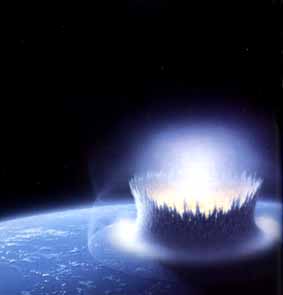
And that’s why Apologetics is kind of silly. This sort of thinking is applied to a lot of aspects of the real world and it’s always just a silly idea that people throw around as if it’s brilliant. But rarely do these explanations actually sound as plausible as the people proposing them think they are. If the Earth was hit by a comet, it wouldn’t have so perfectly flooded the planet. Even if it did, it wouldn’t have caused the Grand Canyon (though maybe one hell of a crater instead). It doesn’t make sense, no matter how much you want to believe it does.
And the same holds true for when you apply that kind of thinking to a work of speculative fiction. Speculative fiction genres already tend to have a heavy requirement for suspension of disbelief, but when you refuse to let the Fantasy budge while you’re introducing the Sci-Fi, you’re not really getting any benefit from the science. And if you’re not really getting any benefit, you may as well not even try. In essence, if you’re going to make science and fantasy meet in the middle, actually let them meet in the middle. Because if you refuse to let that happen…
You’re not making Fantasy or Sci-Fi better, you’re just making both of them worse.
(I write novels. They’re sci-fantasy, and yes, I make my fantasy budge to fit the science. In fact, if you follow my twitter account, you’ll see how the two interact with #AlterFacts)







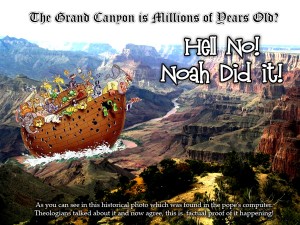
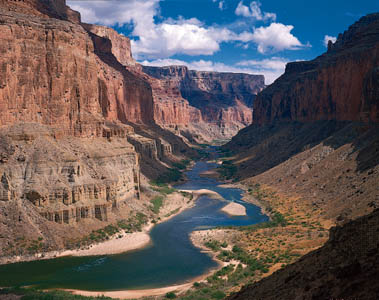
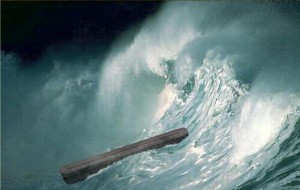
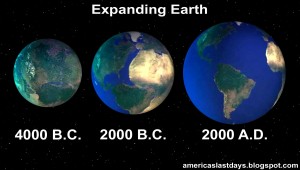
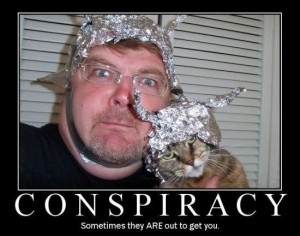

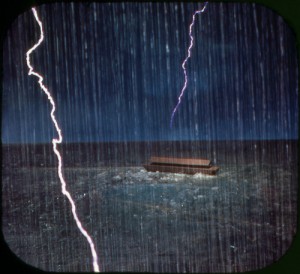






Silly, just plain silly. But thanks for YOUR Apologetics on YOUR thoughts! You did have some entertaining things to say, though.
I’m not sure what apologetics I did here. I was identifying things OTHER people thought so people can see how silly that can get. None of the views expressed in this article beyond “this shit is silly” are my own. Expanding Earth, Smooth Earth, Hovind Theory…these are examples from around the internet on what Apologetics look like when left unchecked. Sorry if that wasn’t clear.
And if it was clear, well…that presents another issue, doesn’t it?